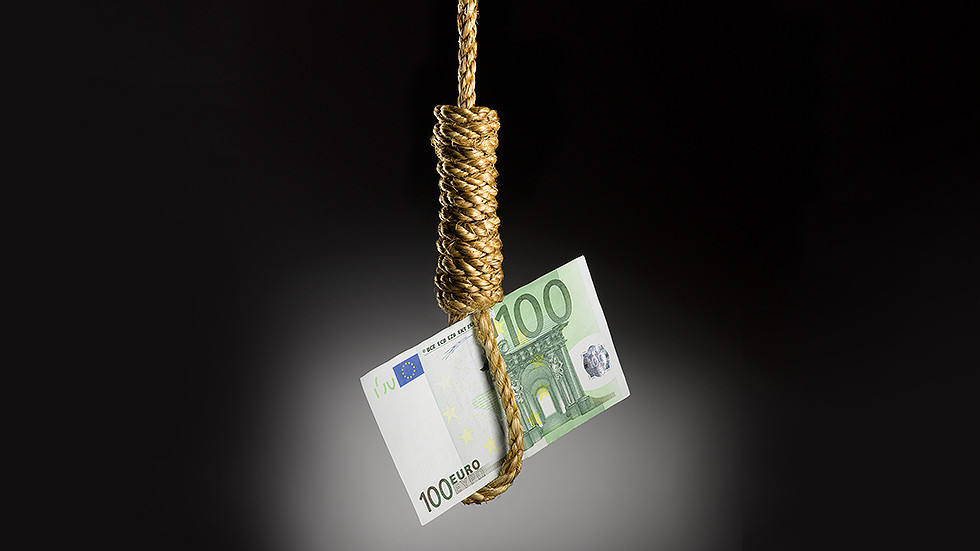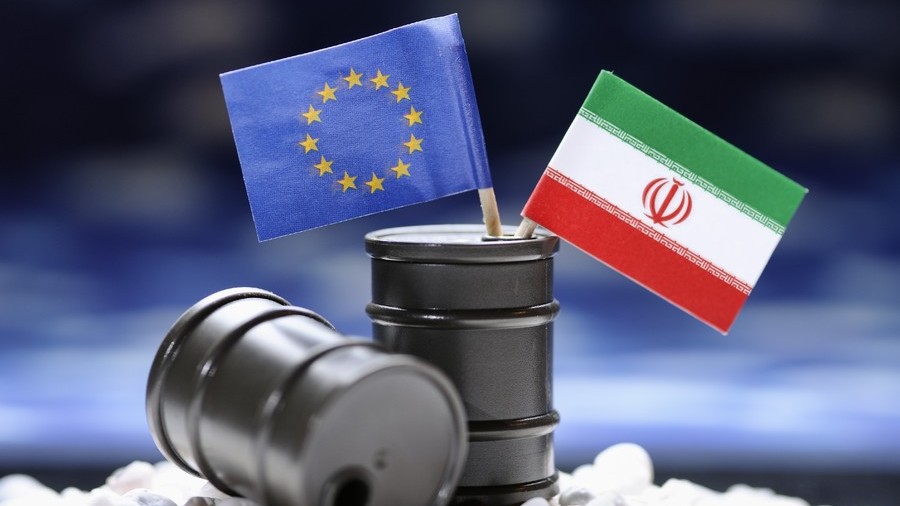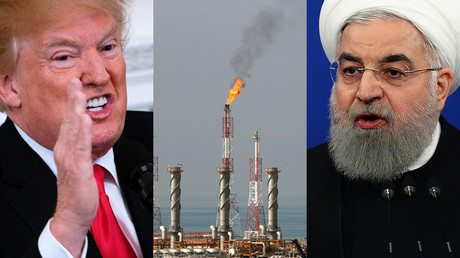Mr. Lucas, Don’t Take Your Readers for Fools! by Prof. Vladimir Golstein
So Edward Lucas, the columnist at
The Times, the long time contributor to the notoriously Russophobic
Economist and the author of 2008
The New Cold War: Putin’s Russia and the Threat to the West, where he fully exhibits his own paranoia about the dangers of Putin’s Russia,
has came up with a new theological and cultural diagnosis.
Paranoia is the religion of Putin’s Russia. Not communism, not
capitalism, not Orthodoxy, not atheism. Just plain old paranoia.
Why, and how? Argument number #1 is that RT has put him on the list
of ten top Russophobes. Lucas’ complaint: the list is haphazard and
flimsy. Fine, any list is haphazard and flimsy – it just points to some
people or organizations that like to come up with ridiculous charges and
accusations, not dissimilar from his own “academic” investigations. So
what? Having never produced anything academic himself, Mr. Lucas can’t
expect any academic study from RT, can he?
Argument #2. Mr. Lucas had found an academic study to his liking — Ilya Yablokov’s
Fortress Russia
— that discovered that Russian conspiracy theorists, who were on the
margins in the 1990s have come to the forefront in the current
situation. Yablokov has studied Russian TV and found its style paranoid.
Yablokov’s conclusion: the US is a paranoid Empire to be sure, but
mainstream TV does not usually cater to it, as opposed to the mainstream
Russian TV. Maybe, even though CNN and Fox would surely provide serious
competition.
Without any desire to defend the rather combative style of Russian TV
talk shows where guests clash, fight, and play the roles assigned to
them by the hosts, I am certain that these shows do address real foreign
policy concerns. Any detached observer looking at the map and seeing
NATO bases all around Russia is bound to ask questions. Any detached
observer listening to Western news and hearing the endless bacchanalia
of Russia this, Russia that, is bound to get nervous. Any detached
observer, having witnessed endless the West’s bombing campaigns, wars,
invasions, regime changes, mass migrations and destruction, is bound to
get a bit edgy about western intentions. And it would not be paranoia.
It would be plain common sense.

And what about Russian history? Hasn’t the country been invaded again
and again throughout its history? The latest invasion, that of Nazi
Germany, is still remembered by all Russians, since one can hardly find a
family that did not lose someone in that awful war. Last time Germans
and Ukrainians got together, my relatives were brutally murdered in
Kiev, mowed downed – along with thousands others in Babi Yar. So even
living in the United States, I do get nervous when Ukrainians, helped by
their European admirers, burn people in Odessa. Genetic memory is a
stubborn thing, you know. So can you really blame Russians for getting a
bit anxious about the events in Ukraine, Mr. Lucas, or as the happy
denizen of the murderous British Empire, that one that killed, burned,
shot, and starved others, you can’t imagine what fears of prosecution
are actually all about?
Wait a minute, says Mr. Lucas. “German Unification, EU and NATO
enlargement, Ukrainian independence”: These recent events on the borders
of Russia — are haphazard. There never was a master plan. Well, if it
looks like a duck, and acts like a duck, it has to be a duck. In fact,
there are rarely master plans for anything, unless we are talking about
Hillary’s campaign to justify her spectacular loss of 2016 presidential
campaign. What we’re witnessing, however, is the plain old confluence of
interests and appetites that results in wars, sanctions and invasions.
Just read some basic history, Mr. Lucas, before you present yourself as
the heroic conspiracy theories slayer.
Argument # 3. Russians do a lot of mischief to themselves:
corruption, bribes, oligarchs. That’s for sure. But so what? Russian
corruption is bad, and one hopes that Russians will get rid of it. But
it does not mean there are no countries that want to invade and loot the
place, and squeeze away local oligarchs. Even paranoid people have
enemies, as the maxim goes. There’s plenty to steal in Russia. Do you
think, Mr. Lucas, that western oligarchs want to leave it all to
Russians? Don’t underestimate your own sponsors. They don’t like it.
Furthermore, oligarchs and corruption are rampart in Great Britain
and US, and still these countries are running on paranoia and arming
themselves to the teeth. And what about Poland, the Baltic States,
Ukraine – the countries that do indeed thrive on paranoia? But their
paranoia fits western narratives, so it’s “our kind of paranoia.” As
opposed to Russian paranoia, which is obviously a wrong kind of
paranoia. What about the paranoia of the trigger-happy Israel, which
manifests itself in endless violence and military excursions against its
neighbours? So Israel has Judaism for religion, Poles have Catholicism,
but Russians have Paranoia. A strange doctrine, and new.

And then, Lucas totally reverses himself, and says – that the west
should not stoke Russia’s siege mentality by a military build up on its
borders and endless provocations. Finally! Lucas dares to rise to the
occasion and criticize the West … but we rapidly learn why. This
righteous indignation is provoked by Trump’s and Bolton’s proposal to
withdraw from the INF treaty. But even this criticism is turned on its
head. This new arms race is bad, because it will help Russia to “crack
down, lash out and make it look more important than it is.”
In other words, NATO countries should not place their war-heads in
Roumania or Poland, they should not claim that they could actually win a
nuclear war (something that only American theoreticians, including
former Secretary of Defense, Ash Carter, do) – they should not do any of
those things because these actions will make Russians think that they
are more important than they are. That would be a really dangerous case
of paranoia. Much more dangerous than the destruction of life on earth
as we know it.
But Lucas does not stop there; playing the role of Candide must be
way too enjoyable. He claims that compiling the list of “Russophobes” is
a “childish bad habit” – never mind the Magnitsky list, nor plenty of
other lists compiled by the State Department, the Mueller investigation,
social media police and numerous other western outlets, whose endless
lists still can’t satisfy the lust for more and more sanctions against
more and more individuals. Those lists are the sign of profound
maturity, no doubt.
And in a true demagogic fashion, Lucas concludes: we’ve been paying
too much attention to “nasty but grand Russians.” We should celebrate
Russia’s “colossal contribution to world culture.” Oh, so Russia is
important after all. How refreshing. Let’s wipe Russia off the map with
nukes, and then enjoy Russian ballet at Covent Garden or Russian novels
in their BBC adaptations.
Source:
https://off-guardian.org/2018/10/25/mr-lucas-dont-take-your-readers-for-fools/?fbclid=IwAR0_JZK9AWAo587C45e5vKgiCS1lITZYsWv1ZcvrKPRCCLvhbD9kXzWTgos
Related: Guy Mettan’s Book on Russophobia Is a “Must Read” for Any Person Interested in Russia
























 Liberteon
Liberteon